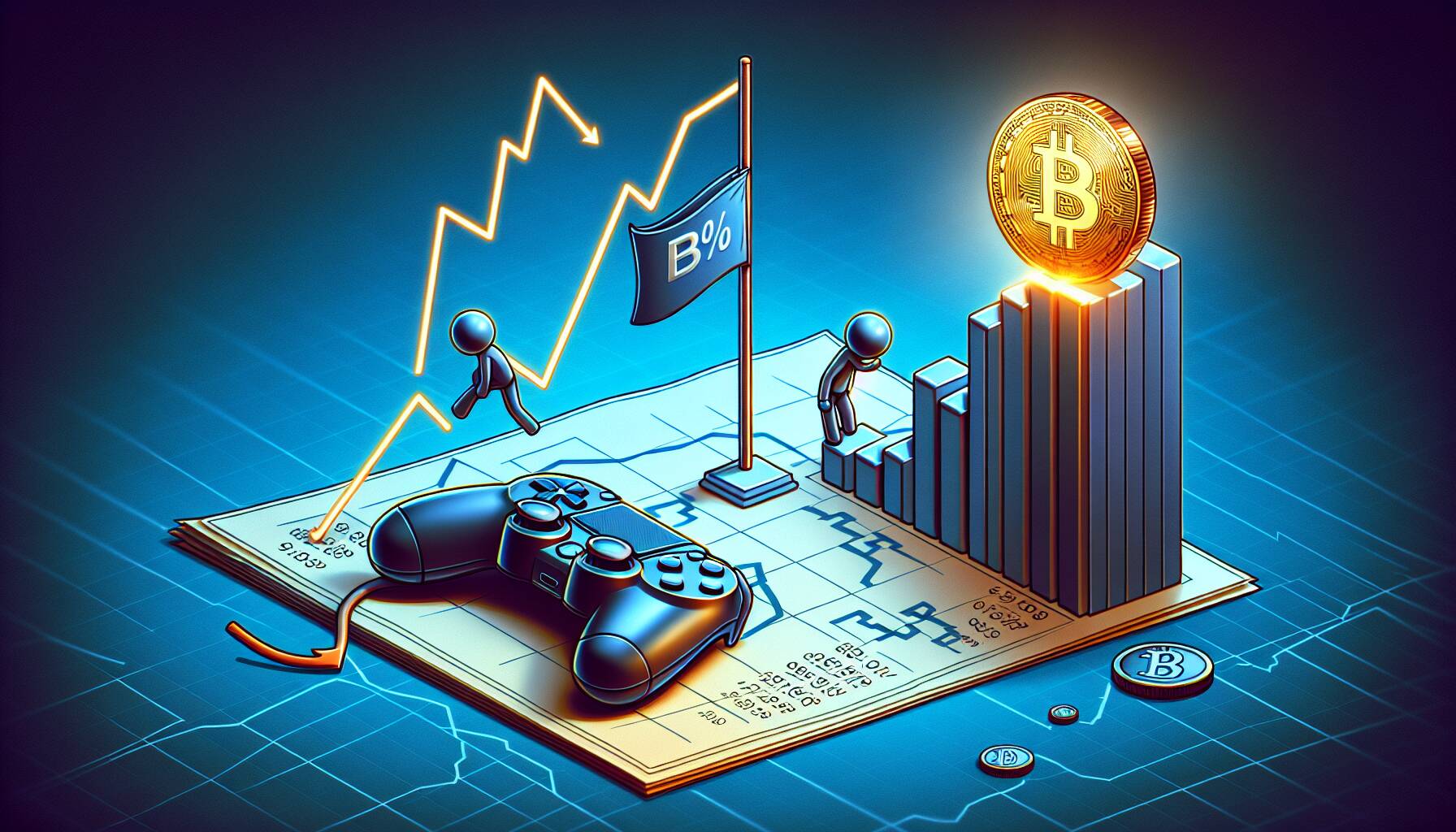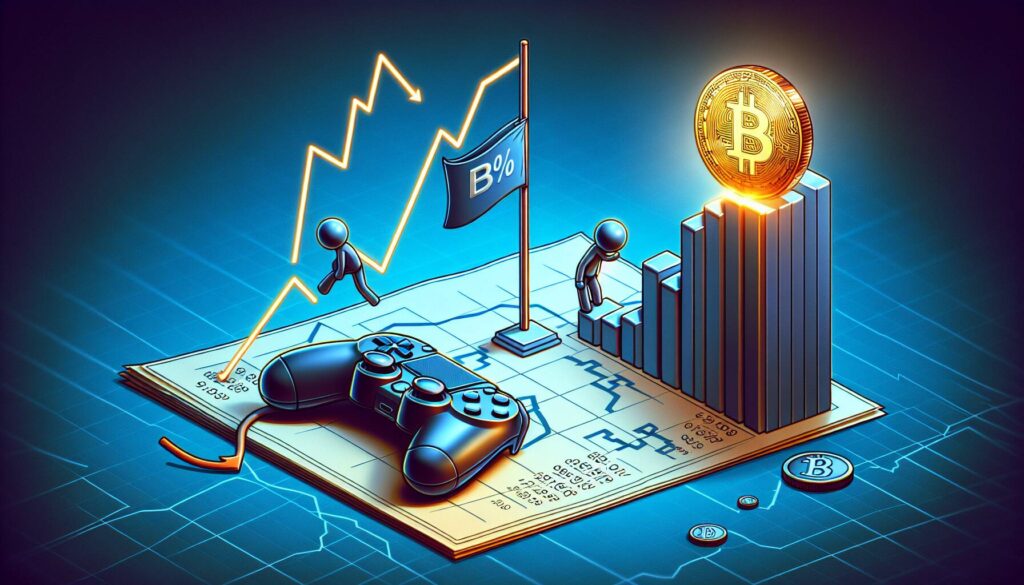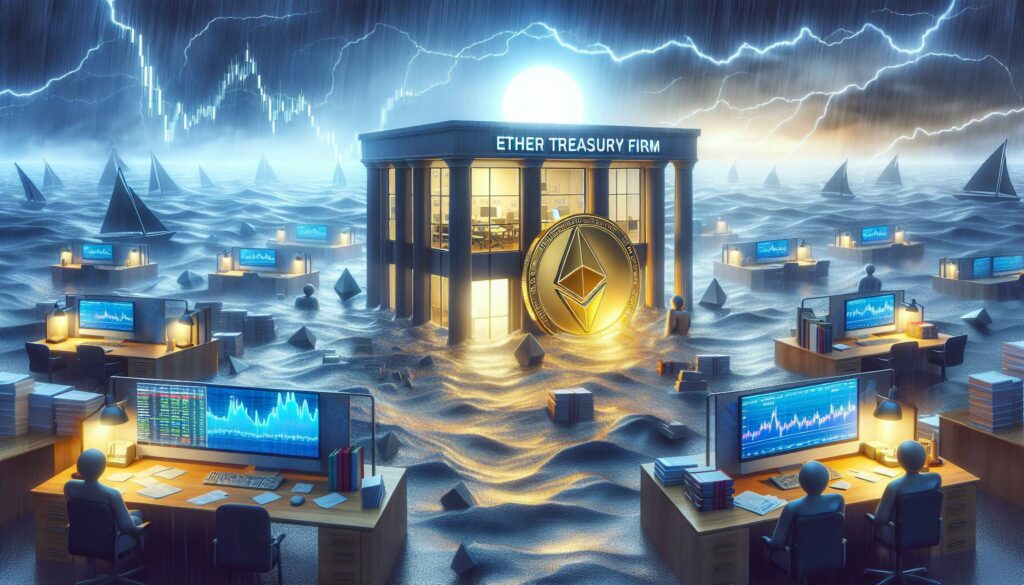GameStop, a well-known video game retailer, has recently seen a dramatic decline in its stock price, plunging 20% following the announcement of a substantial $1.75 billion debt offering. This move comes on the heels of the company’s inaugural investment in Bitcoin, signaling a potentially transformative shift in its business strategy.
The decision to raise capital via a convertible notes offering has raised eyebrows among investors, especially as the company also reveals plans to delve into trading cards. While these developments may hint at a bold new direction, the market has reacted negatively, reflecting concerns about the implications of increasing debt during a time of fiscal uncertainty.
“GameStop’s approach to expanding into cryptocurrency and collectibles aligns with broader trends in retail and asset diversification,” said an industry analyst, pointing out the significant shift in how traditional retailers are adapting.
This volatility in GameStop’s stock underscores the intense scrutiny the market places on companies attempting to pivot in the fast-evolving landscape of digital assets. The retailer’s actions are being watched closely as they could signal broader trends not just for GameStop, but for the entire retail sector as they explore new revenue streams in an increasingly digital economy.

GameStop’s Recent Stock Decline and Capital Raise
Key points regarding GameStop’s recent financial moves and market impact:
- 20% Stock Plummet: GameStop shares fell significantly, indicating potential investor concern.
- New Capital Raise: The company announced a proposed $1.75 billion debt offering, aiming to bolster its financial position.
- Bitcoin Purchase: GameStop initiated its first acquisition of Bitcoin, marking a strategic shift towards digital currency.
- Convertible Debt Offering: The offering involves convertible senior notes, which could convert into equity later, affecting stock dynamics.
- Market Reactions: The stock’s decline may influence investor confidence and the overall market perception of GameStop’s strategy.
- Trading Cards Initiative: Alongside financial maneuvers, GameStop plans to engage in the trading card market, diversifying its product range.
These developments may impact individual investors by affecting share value and shaping their investment strategies.
GameStop’s Decline Amidst New Financial Moves
GameStop, the once-beloved video-game retailer, has seen its shares plunge by 20% following the announcement of a new capital raising initiative and the company’s first foray into Bitcoin. This drastic move has raised eyebrows and brought forth a tide of speculation regarding the company’s future. The announcement of a $1.75 billion convertible debt offering has set the stage for a mixed response among investors and market analysts alike.
Competitive Advantages: On one hand, GameStop’s push into the digital currency space could be seen as a forward-thinking strategy aimed at attracting a younger, more tech-savvy demographic. This move may resonate with investors looking for companies that embrace digital innovation, potentially positioning GameStop as a pioneer in the retail gaming segment utilizing blockchain technology.
Additionally, the capital raised through the convertible debt offering could provide the company with the necessary funds to restructure and pivot toward emerging markets, possibly diversifying its product offerings beyond physical games and consoles.
Disadvantages: However, this strategy is not without its challenges. The decision to increase debt at a time of financial uncertainty raises concerns about the company’s long-term viability. Investors may question whether the initial plunge into Bitcoin is driven by a genuine strategic aim or a desperate attempt to capture attention in a crowded market without a clear path to profitability.
For traditional investors, the news may be a red flag, suggesting instability and risk, while for cryptocurrency enthusiasts, it might provide an unexpected opportunity. The stark contrast between traditional retail investors’ fears and crypto investors’ thrill highlights the potential for polarization in GameStop’s shareholder base.
Ultimately, the retailer’s latest financial maneuvers could benefit a segment of its investor community eager for high-risk, high-reward scenarios, while simultaneously creating friction with conservative investors wary of increased leverage and volatility in an already unpredictable market.
















